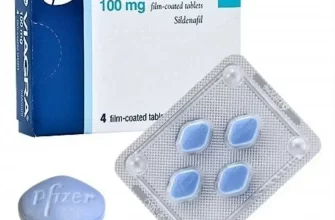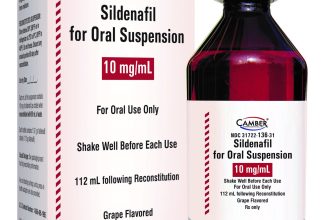Need information on combining Viagra with other medications? This article provides a clear overview of potential drug interactions, focusing on safety and efficacy. We’ll examine specific medications that may interact negatively or positively with Viagra, offering practical advice to help you make informed decisions about your health.
Nitrates, for example, are a strict no-go. Combining them with Viagra can cause a dangerous drop in blood pressure, leading to serious health complications. We’ll detail other medications that may require dosage adjustments or careful monitoring when used concurrently with Viagra, including alpha-blockers frequently prescribed for hypertension and prostate issues. This includes specifics on how these interactions manifest and what precautions your doctor might suggest.
Understanding the mechanisms behind these interactions is key. We’ll explore how Viagra affects the circulatory system and how this impacts the way other drugs are processed and utilized by the body. This will help you engage in a more productive discussion with your physician regarding your medication regimen. We will also examine some less common but equally important interactions to ensure a holistic understanding of this topic.
Drugs with Viagra: A Detailed Guide
Always consult your doctor before combining Viagra (sildenafil) with other medications. Many drugs interact negatively with Viagra, potentially causing dangerous side effects or reducing its effectiveness.
Alpha-blockers, often used for high blood pressure or enlarged prostate, can significantly lower blood pressure when taken with Viagra, leading to dizziness or fainting. Your doctor might adjust your dosages or prescribe alternatives.
Nitrates, used to treat angina (chest pain), are strictly contraindicated with Viagra. This combination can cause a dangerous drop in blood pressure, potentially leading to a heart attack or stroke. Never take them together.
Certain antifungals, like ketoconazole and itraconazole, can increase Viagra’s levels in your blood, intensifying its effects and side effects. Dosage adjustments may be necessary.
HIV protease inhibitors, such as ritonavir and indinavir, can also increase Viagra’s blood levels, requiring careful monitoring and potential dosage reductions.
Many other medications may interact, including some antidepressants, antibiotics, and blood thinners. Provide your doctor with a complete list of all medications, supplements, and herbal remedies you are taking to ensure safe and effective treatment.
Grapefruit juice inhibits enzymes that break down Viagra, leading to higher blood levels. Avoid grapefruit juice while taking Viagra.
This information is for guidance only. Individual responses to drug interactions vary. Always seek professional medical advice before using Viagra or combining it with other medications.
Viagra Interactions: Medications to Avoid
Always consult your doctor before mixing Viagra (sildenafil) with other medications. Certain drugs can interact dangerously with Viagra, leading to potentially serious side effects.
Here’s a list of medication classes that frequently interact negatively with Viagra:
- Nitrates: Nitroglycerin, isosorbide mononitrate, and isosorbide dinitrate, commonly used to treat angina (chest pain), can cause a dangerous drop in blood pressure when combined with Viagra. This combination can lead to fainting or even a heart attack. Avoid using them together.
- Alpha-blockers: These medications, used to treat high blood pressure and enlarged prostate, can also cause a significant drop in blood pressure when taken with Viagra. This interaction warrants careful monitoring by your physician.
- CYP3A4 inhibitors: These medications, including some antifungals (like ketoconazole and itraconazole), macrolide antibiotics (like erythromycin and clarithromycin), and HIV protease inhibitors, can increase Viagra’s levels in your blood, potentially increasing the risk of side effects. Your doctor might adjust your Viagra dosage accordingly.
- Guanylate cyclase stimulators: These medications, used for pulmonary hypertension, have similar effects to Viagra and should not be taken together. Concurrent use might lead to dangerously low blood pressure.
This list is not exhaustive. Other medications may also interact with Viagra. Always provide your doctor with a complete list of all medications, supplements, and herbal remedies you are taking.
Specific medication interactions can vary depending on individual factors and dosages. Your doctor can assess your personal situation and advise you on the safest approach. Never self-medicate or adjust your medication dosages without consulting your physician.
- Always inform your doctor about all your current medications before starting Viagra.
- Follow your doctor’s instructions precisely regarding dosage and timing of medication.
- Report any unusual side effects to your doctor immediately.
Viagra and Specific Health Conditions: Considerations and Precautions
Heart Conditions: Viagra can lower blood pressure. If you have heart disease, angina, or high blood pressure, discuss Viagra use with your doctor. They may recommend a lower dose or an alternative treatment. Recent heart attack or stroke patients should avoid Viagra entirely.
Eye Conditions: Rarely, Viagra can cause vision changes, including temporary blue-tinged vision or vision loss. If you have a history of retinal problems, inform your physician before using Viagra. Report any sudden vision changes immediately.
Liver or Kidney Disease: Your doctor should adjust your Viagra dosage if you have impaired liver or kidney function. These organs process medications, and reduced function can lead to increased drug levels in the blood.
Blood Cell Disorders: Viagra can interact negatively with certain blood disorders. Patients with sickle cell anemia, leukemia, or multiple myeloma need to discuss risks with their doctor before Viagra use.
Stomach Ulcers: Individuals with stomach ulcers should exercise caution. Viagra may exacerbate symptoms in some cases. Discuss the potential risks with your healthcare provider.
Prostate Problems: Men with benign prostatic hyperplasia (BPH) should discuss Viagra use with their doctor. It can interact with certain medications used to treat BPH.
Always consult your doctor before using Viagra, especially if you have any pre-existing medical conditions or are taking other medications. They can help you determine if Viagra is safe and appropriate for you, and prescribe the correct dosage. Open communication with your physician is key to safe and effective treatment.
Alternative Treatments and Management Strategies: Exploring Options Beyond Viagra
Consider lifestyle changes. Regular exercise, a balanced diet, and weight management significantly improve erectile function. Aim for at least 150 minutes of moderate-intensity aerobic activity per week. A diet rich in fruits, vegetables, and whole grains supports vascular health.
Medication Alternatives
Your doctor might suggest alternative medications. These include phosphodiesterase-5 inhibitors like tadalafil or avanafil, which offer similar benefits to sildenafil (Viagra) but with varying durations of effect. They may also explore medications addressing underlying health conditions contributing to erectile dysfunction, such as hypertension or diabetes.
Penile injections or vacuum erection devices are additional options. Penile injections directly introduce medication to increase blood flow. Vacuum devices create a vacuum to draw blood into the penis, aiding erection. Discuss these options with your physician to determine suitability.
Therapy and Counseling
Psychological factors often play a significant role in erectile dysfunction. Therapy, particularly cognitive-behavioral therapy (CBT), can help manage performance anxiety and relationship issues impacting sexual health. A therapist can provide personalized strategies for addressing these concerns.
Surgical interventions are available in certain cases. Penile implants offer a permanent solution for severe erectile dysfunction. However, surgery should be considered after exhausting other options, and only after a comprehensive medical evaluation by a urologist.






